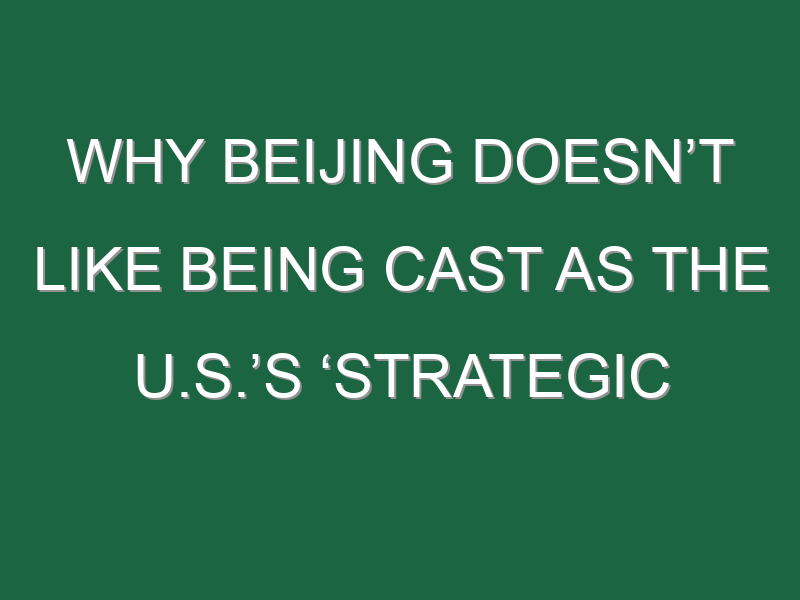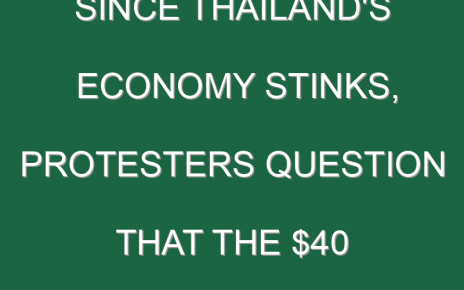This is the web version of Eastworld, Fortune’s newsletter focused on business and technology in Asia. Subscribe here to get future editions in your inbox.
In Joe Biden’s first week as president, Beijing has mostly kept the muzzle on its “Wolf Warriors,” the pack of senior Chinese diplomats who earned that nickname during the Trump years for their howling denunciations of the United States. But late Wednesday, Cui Tiankai, China’s ambassador to Washington, issued a warning growl.
“Treating China as a strategic rival and imaginary enemy would be a huge strategic misjudgment,” he told an online forum, according to Reuters. “To develop any policy on the basis of that would only lead to grave mistakes.”
The remarks were the first major pronouncement by a senior Chinese official on U.S.-China relations since Biden took office. Cui stressed that China sought peaceful co-existence and cooperation with the United States. He urged leaders from both nations to resolve differences through dialogue. But he added a blunt ultimatum: on matters of sovereignty and territorial integrity, China will not yield.
“China will not back down,” Cui said. “We hope the United States will respect China’s core interest and refrain from crossing the red line.”
Cui’s statements follow a week of consistent messaging by senior Biden officials that the new administration has no intention of softening Trump’s hard line on China. On Friday, newly appointed U.S. Defense Secretary Lloyd Austin reaffirmed in a phone call to his Japanese counterpart, Nobuo Kishi, that the U.S. opposed “any unilateral attempts to change the status quo in the East China Sea,” and would respond to any attack on the Senkaku Islands in accordance with the U.S.-Japan Security Treaty. The uninhabited rock outcroppings are controlled by Japan but claimed by China, which refers to them as the Diaoyu Islands.
On Tuesday, Gina Raimondo, Biden’s nominee for commerce secretary, told Congress that the U.S. must develop a “whole-of-government response” to combat unfair Chinese trade practices and vowed to use the full powers of her office to protect America’s telecommunications network from “Chinese interference.”
In testimony before the Senate Foreign Relations Committee Wednesday, Biden’s nominee for ambassador to the United Nations, Linda Thomas-Greenfield, assailed China as threat to U.S. values. “I see what they’re doing at the United Nations as undermining our values, undermining what we believe in. They’re undermining our security. They’re undermining our people and we need to work against that,” Thomas-Greenfield said. “I will be working aggressively against Chinese malign efforts in New York.”
In the interval between Biden’s victory and the inaugural, many Chinese experts spoke giddily of a “reset” of U.S.-China relations under the new administration. The Biden team’s recent rhetoric makes clear that’s not in the cards.
And in at least one respect, Beijing sees Biden’s approach to dealing with China as a bigger threat than Trump’s. A common refrain of the Biden team is that, unlike Trump’s go-it-alone China policy, the new president vows to work in coordination with U.S. allies. To Chinese leaders, that sounds like code for pursuing a Cold War “containment strategy” to China similar to the U.S. standoff with the old Soviet Union. Cui warned that U.S. efforts to build a global coalition to increase leverage over China could create “new imbalances.”
It’s easy to dismiss the barrage of indignant rhetoric on both sides as political theater. But the more it escalates, the greater the risk that one day this war of words could erupt into a very real war between the two most powerful nations the world has ever known.
To help readers visualize that possibility, WIRED magazine this week engages in an extraordinary thought experiment. It’s devoted its entire February print issue to an excerpt of 2034: A Novel of the Next World War, a new book by novelist Elliott Ackerman and Admiral James Stavridis. It’s fiction but vividly and plausibly imagines how geopolitics, technology, and human miscalculation can spin out of control—and what can go wrong when Beijing and Washington start crossing each others’ “red lines.”
More Eastworld news below.
Clay Chandler
[email protected]
This edition of Eastworld was curated and produced by Grady McGregor. Reach him at [email protected].





